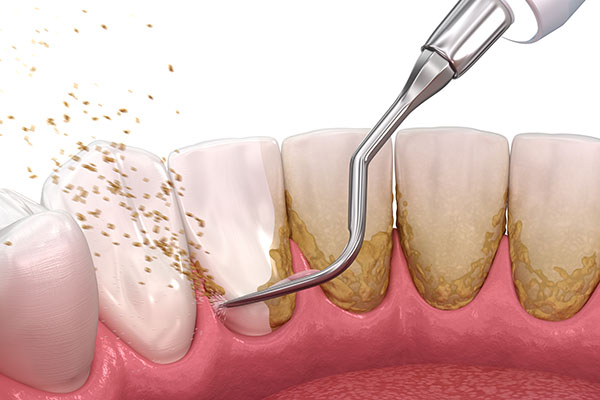 Although many people believe that plaque and tartar are the same, they actually have significant differences. Understanding the distinctions between these two dental conditions can help you identify their warning signs and practice oral hygiene basics to avoid them.
Although many people believe that plaque and tartar are the same, they actually have significant differences. Understanding the distinctions between these two dental conditions can help you identify their warning signs and practice oral hygiene basics to avoid them.
What is plaque?
Plaque is a soft film containing millions of bacteria that build up on your teeth, gums, and tongue. These bacteria feast on the food you eat and produce acids that disintegrate your enamel and lead to cavities. Plaque is a sticky substance that bacteria create to protect themselves and make them harder to remove. If you see a viscous white or yellow substance on your teeth or between your gums, it is most likely plaque.
Implementing oral hygiene basics, such as brushing your teeth and flossing, into your daily routine is important to prevent plaque and cavities from forming. If cavities are left untreated, the decay will eventually travel to the inner layer of the tooth that contains the nerve. This can lead to severe tooth pain, sensitivity, and visible holes in the tooth.
What is tartar?
If plaque is not removed, it hardens, trapping calcium and other minerals contained in the saliva. This is known as tartar. Tartar makes the teeth appear stained or discolored and traps plaque, increasing your risk of developing even more tartar. It can also build up around the gum line and result in the early stages of gum disease.
Unlike plaque, which can be removed by brushing your teeth twice a day and flossing, the only way tartar can be successfully removed is by visiting the dentist for a cleaning.
How do you know if you have plaque or tartar?
Some of the most common signs of plaque include chronic bad breath, a fuzzy or slimy feeling on the teeth, and tender gums that bleed after brushing. You may also find that your teeth are sensitive to hot or cold foods. On the other hand, common signs of tartar include discolored spots on the teeth, especially in between the teeth or near the gums, and painful, swollen gums.
You have a higher chance of developing plaque or tartar if you do not brush or floss regularly or seek regular dental care. Therefore, it is important to be diligent when it comes to oral hygiene basics
How can you prevent plaque?
Practicing good oral hygiene is key to preventing plaque and tartar buildup. This includes the following:
- Brushing your teeth at least twice a day
- Changing your toothbrush every three to four months
- Flossing every day
- Drinking plenty of water
- Visiting the dentist regularly
In addition, your food intake has a large impact on the state of your teeth. It is recommended that you generally stay away from candy, carbonated drinks, and foods high in carbohydrates, such as bread and chips.
Conclusion
Visiting a dentist regularly to remove plaque and tartar is essential to maintaining proper oral hygiene. Although you can clean off plaque by brushing your teeth and flossing, you must visit a dentist to get rid of tartar.
Request an appointment or call Family Choice Dental at 505-634-5657 for an appointment in our Albuquerque office.
Related Posts
There are several options available to patients after losing a tooth. One of the more popular options -- and perhaps the longest-lasting solution – is implant dentistry. This involves the placement of one or more dental implants, followed by the attachment of abutments and a crown, bridge, or denture.Depending on the number of teeth that…
Implant dentistry offers a tooth replacement solution that looks and feels natural. This is due in large part to the implant, which fuses together with the jawbone and serves as the support and root of the replacement tooth. This review discusses the unique benefits of choosing implant dentistry to replace a missing tooth.The most notable…
Implant dentistry includes the entire treatment implant process, from the consultation visit to providing aftercare and educational services to ensure the implants remain in good condition. The following review discusses how you can get the most out of your dental implants through good aftercare practices.You can care for your dental implant restoration by implementing a…
